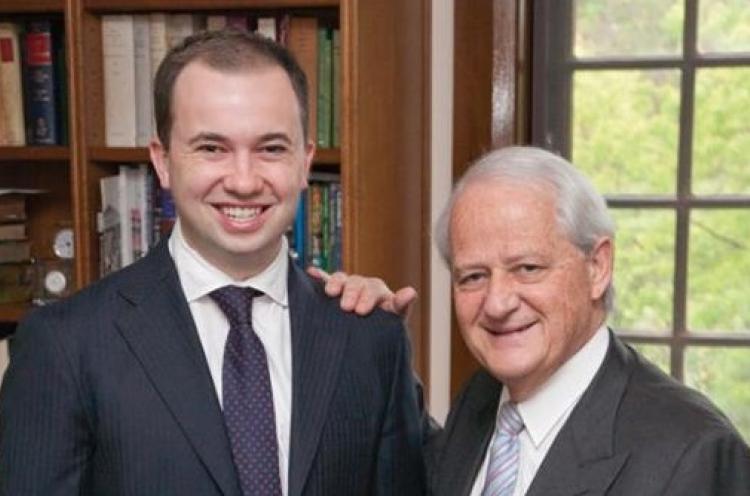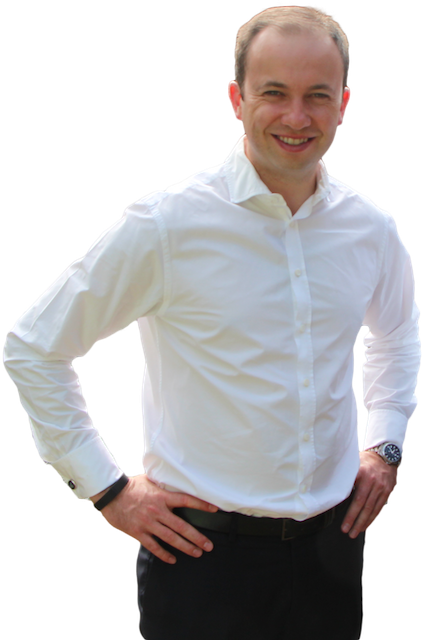
There are few constants in politics, but last week there was one fewer, with Philip Ruddock calling time on his distinguished career as a member of Parliament. Elected in 1973 to the marginal seat of Parramatta, Philip's biggest worry at the time was to make his career last longer than six months. Tonight, 42 years later, Philip retires as Australia's second longest serving member of the House of Representatives, second only to Billy Hughes. His journey began learning the trade at the feet of his father, Max. Max was an economist who worked in Canberra as the Deputy Prices Commissioner. He was on a track that could have led him to being a head of a department but he was forced to move from Canberra to Sydney because his mother-in-law developed cancer. Canberra's loss was certainly Sydney's gain.
The Ruddock family moved to Pennant Hills where Philip grew up attending school at Barker College. Soon after the Ruddocks arrival, Max successfully stood for Hornsby Shire Council where he would later go on to serve as shire president. From an early age Philip was exposed to public life, whether it be helping on the campaign trail or eavesdropping on his father's weekend strategy meetings with local political powerbrokers. All of this seemed to rub off on Philip when, at the age of 16, after stumbling upon some maps in his father's basement, he uncovered a legal impediment to the then State Government's desire to make the suburb of Westleigh an industrial area. Westleigh is the beautiful suburban family suburb it is today because of Philip Ruddock.
Philip really was his father's right-hand man. Their formidable partnership would see Max realise his ambition to be elected to the State Parliament in 1962 as the member for The Hills where he would later go on to serve as the Minister for Transport in the Lewis Government. He was highly regarded as an incredibly hard worker; a characteristic his son would be known for many years later. At the same time Philip joined the Young Liberal Movement. One of his young Liberal contemporaries described him as enormously good fun. He was a regular participant in the annual revue, as well as an active participant on the campaign trail and in many policy debates.
It was during this time that Philip undertook his most important campaign: to win the heart of a beautiful, articulate and intelligent young lady from South Australia. They met at the second National Young Liberal convention in Perth. Three months later they were engaged and they were married not long after. Heather to this day remains his biggest fan, and as I just witnessed in my office, she is still his harshest critic. I am delighted that Heather is in the gallery. In 1971 Philip stood for the position as Young Liberal President. Philip's opponent was none other than Chris Puplick, who in time would become a close friend and Federal colleague. Those in the Chamber may be surprised to hear that Philip won the ballot on the basis that he was the more progressive candidate in the field.
As Young Liberal President, Philip would lead the charge for democratisation of the party by demanding that members of the State Executive participate in the election of members of the Legislative Council. Up until this time Liberal members of the Legislative Council were elected by their colleagues in the Legislative Assembly and the non-retiring members of the council. In 1974 the Federal seat of Parramatta became vacant with the departure of Nigel Bowen to the Federal Court of Australia. The ensuing preselection saw a formidable field of 30 candidates. Two of Philip's opponents on the day would go on to become judges and two others would go on to serve in Federal Parliament elsewhere.
But Philip's primary opponent was none other than Sir Nicholas Shehadie. Nick was a prominent businessman and former Wallaby captain. Not only that, he had the backing of the party's establishment including the President, Sir John Atwell, the Treasurer, Sir Daniel Arrons and the powerful General Secretary, Sir John Carrick. Nick had been well prepared for the selection with Bob Askin getting the member for Hornsby Neil Pickard to write the speech. However, the wheels fell off on the question and answer component where Philip shone because of his ability to think on his feet and articulate difficult arguments. The final ballot saw Philip declared the winner 25 to 24 with one informal vote. Rumour has it that the informal vote was from a young Peter Collins who would later go on to lead the New South Wales Liberal Party in opposition. I think we all owe Philip, and probably Peter Collins, a debt for allowing us to later have Marie Bashir as Governor of New South Wales.
Philip threw himself into the by-election with vigour and he set a cracking pace. He campaigned on two issues, namely, the cost of living pressures people were experiencing as a result of the Whitlam Government and the proposed airport at Galston—thankfully for me as the member for Hornsby he was successful on the Galston issue. Probably the most memorable story from that campaign is the one told by Chris Puplick. Ruddock, after a hard day on the hustings, wandered into a pub with then Leader of the Opposition Billy Snedden. A cocky young patron spotted Snedden and challenged him to a game of pool. Puplick recalls:
The kid broke and potted a couple of balls … t hen Snedden moved in and just wiped the table, pocketed one ball after another until he'd cleaned the guy up. The kid's friends were all hooting and laughing and Snedden picked up the $10 and said to the barman we will have 12 middies.
Then strike me lucky if Philip didn't pipe up, 'M ake that 11 middies and one orange juice.'
I could have sworn Snedden was going to get that pool cue and insert it in him .
Philip held the seat of Parramatta in 1974 and 1975 before moving to the seat of Dundas in 1977 following a redistribution. In 1992 the commissioners thought they would again try to get Philip out of Parliament by abolishing the seat of Dundas. But again Philip outsmarted them and moved Berowra, where he has served as the member ever since.
Upon entering the Parliament, Philip quickly gained a reputation, like his father, for being smart, hardworking and principled. He was the standard bearer for progressive Liberals in the Parliament, championing human rights causes, Indigenous issues and founding the first parliamentary Amnesty group. His commitment to liberalism sometimes put him at odds with the party's leadership. Most notably was in 1988 when Philip publically defied his leader, John Howard, for his support of a slow-down in Asian immigration. In response, the Hawke Government introduced a bill repudiating racial quotas in immigration. Four Liberal members of Parliament—Ruddock, Baume, Macphee and Steele Hall—defied Howard and crossed the floor of Parliament to support the Labor bill.
For years he was isolated and opposed at preselection, but he did what very few politicians would be willing to do—namely, he put his parliamentary career on the line on a matter of principle that Australia should have a non-discriminatory immigration policy. I am particularly proud to know Philip Ruddock because of that. That act more than any other in my view sums up the man—honest, principled and full of integrity. When the Coalition finally came to power after 13 years in the wilderness John Howard appointed Philip Ruddock as Minister for Immigration. It was a role that would make him one of the country's most popular yet controversial politicians.
In 1996 the entire political landscape had changed in relation to immigration. Community alarm about the influx of boat people was rising, and the Keating Government had already built a detention centre at Port Hedland as part of its mandatory detention policy. Ruddock's job was to engage in nation building whilst at the same time restore the public's confidence in our immigration system. As Prime Minister Turnbull said recently, in large part Philip has helped to shape the face of modern Australia. His time in the role was not without controversy. Indeed, in 2001 Philip backed a decision to deny entry to the asylum-laden ship Tampa. He was the author of the so-called "Pacific solution" that denied asylum seekers arriving on boats the opportunity to come to this country.
Philip's policies were vigorously opposed by the then Opposition, which has subsequently embraced them—the ultimate vindication. In 2003, following a Cabinet reshuffle, Philip was made Attorney-General. This role saw him lead the nation's response to terror attacks in Bali with the introduction of tough anti-terror legislation. He also oversaw the reform of the Family Law Act, including mediation arrangements over issues such as child custody, defamation law reform and a new property security regime. Just as Philip reshaped the nation's immigration policy, so too did his work on the Family Law Act reshape the way in which we think about domestic relations.
Whilst serving our country at the highest levels, Philip never once forgot where he came from. As a local member he was nothing short of outstanding. There was not an envelope opened without Philip turning up. He really set the standard when it came to community engagement. He was well known across the community but, more importantly, he was well liked and respected enormously. I first met Philip in 2000 when I joined the Northcott Young Liberals branch. My first meeting with him was quite daunting: Here was someone whom my family had admired throughout his career; someone who was a giant in Australian public life was making time for me. That was Philip; he always had time, a gentle smile, a kind word and that wicked sense of humour for which he is known. He was my number one supporter. In fact, Philip was the first person to encourage me to run in 2010 for Hornsby.
I recall a meeting with Michael Photios, whom Philip had signed up to the party many years before—Philip, you have a lot to answer for—and Trent Zimmerman. Photios and Zimmermann were sceptical about my candidacy. They thought I was too young. In trying to talk me out of it, they turned to Philip for backing and Photios said, "Don't you agree, Philip?" Philip, without any display of emotion, responded by saying, “The sooner we get Matt into Parliament the better." Such was Philip's stature in the party that even Photios shut up. It is fair to say I would not be here today without Philip.
Philip's contribution to our nation is too great to try to sum up in the short time available to me. He has influenced a generation of politicians and profoundly changed our political landscape. He will be remembered as one of the most consequential public figures of our time, particularly for his role in building the diverse, tolerant multicultural nation we know today. He has given a voice to those who had none, whether it be Indigenous Australians or those on death row. Philip has always been their champion. Our community, indeed our nation, is a better place because of Philip Ruddock. I have no doubt that he will have the same impact beyond our shores in his new role as Australia's first international representative for human rights.
To view the full Hansard Transcript click here.
